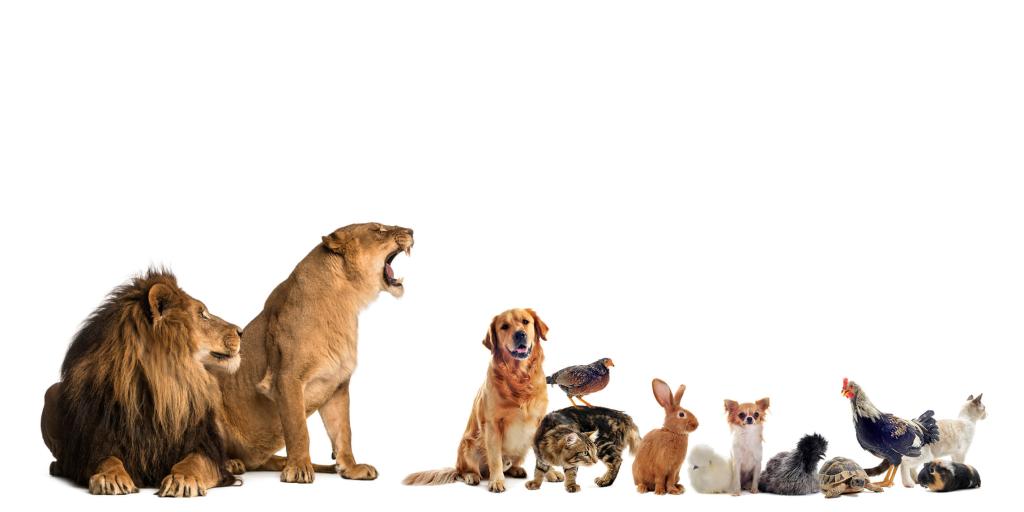
Pets: Past and Future
Throughout history, mankind has made pets of many animals large and small, including hamsters, gerbils, ferrets, rabbits, birds, lizards, turtles, fish, horses, pigs, monkeys, ants, tarantulas, snakes, and others. Dogs top the list of pets that we tend to love, followed by cats in most cases. Of the millions of species of animals God created, only a very small percentage are chosen as pets. But that will change in the future.
No one knows how many species of animal there are; taxonomists have only identified a small fraction of the millions of species on Earth (Hannah Ritchie, “How many species are there?” OurWorldInData.org, November 30, 2022). As to the total number of animals in the world, it has been estimated that there could be 20 quintillion. God thinks big!
God gave mankind dominion over animals and let Adam name them (Genesis 2:19–20). As noted in James 3:7, all kinds of creatures—beasts, birds, reptiles, and sea life—have been tamed by mankind. The dominion God bestowed upon mankind puts us above all animals, be they fierce predators or mild-mannered vegetarians.
The Bible doesn’t speak specifically about pets, but it does indirectly reveal that pets have long been kept by human beings. Exodus 22:31 hints at the longstanding relationship between humans and dogs, saying that we shouldn’t eat the meat of anything killed by a wild animal, but should instead “throw it to the dogs.” This assumes that there are dogs around, in some capacity.
In the account of a Canaanite woman who begged Christ to heal her daughter, Jesus said to her, “It is not good to take the children’s bread and throw it to the little dogs.” And she responded, “Yes, Lord, yet even the little dogs eat the crumbs which fall from their masters’ table” (Matthew 15:26–27). Jesus praised her faith and healed her daughter. Indeed, we see dogs hanging around their masters’ tables, scavenging dropped crumbs. Little boys and girls in countless homes are guilty of sneaking tidbits of their food to their pet dog. I know this from personal childhood experience!
Everything, including every animal, belongs to God (Psalm 50:10–11), so it is not surprising that He gives instructions about how we are to treat His creations. God provides food for the wild animals (Matthew 6:26), and we should do the same for the animals in our care.
A shepherd needs to have intimate care for the animals in his flock—not only providing food, water, and shelter, but also caring for diseases and wounds, as well as protecting them from predators (Proverbs 27:23; Luke 14:5; 15:3–7). Animal husbandry is the wise management of resources concerning the care of animals that are used for food or labor. As Proverbs 12:10 says, “A righteous man regards the life of his animal.”
A time is coming when wild and dangerous animals will have their nature changed. When that happens, they will be at peace with other animals—even animals that are their prey today—and with mankind. Wolves will peacefully coexist with lambs, leopards with goats, calves with lions, cows with bears, “and a little child shall lead them…. The nursing child shall play by the cobra’s hole, and a weaned child shall put his hand in the viper’s den” (Isaiah 11:6–8; 65:25). I’d like a lion and a bear, please. Cobras and vipers—not for me.
Before that wonderful time of restoration, which will occur when Christ returns to rule the world, there will be a terrible time of tribulation, death, and destruction of man and beast. But after Christ’s return, He will restore and greatly increase the lives of both men and animals. “Behold, the days are coming, says the Lord, that I will sow the house of Israel and the house of Judah with the seed of man and the seed of beast” (Jeremiah 31:27).
For more on the prophesied world ahead, you can order or read online the free study guide The World Ahead: What Will It Be Like?
Stay up to date with our Weekly Digest Email!
Tomorrow's World ComMentary Podcast
Subscribe to Tomorrow's World Commentary podcasts on iTunes and Google Play!



